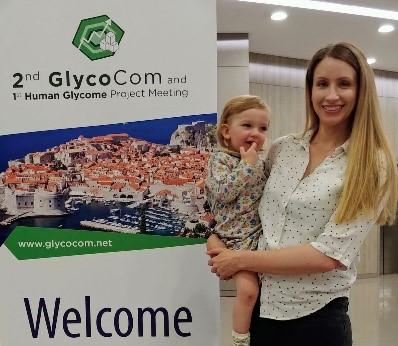2019 marks the 10-year anniversary since Newcastle University formally showed its commitment to gender equality by joining Advance HE’s Athena SWAN Charter. In taking stock of the past ten years, there are a number of initiatives, directly inspired by Athena SWAN, which have had a positive impact on a number of colleagues within the University.
One initiative, of which we are very proud, is our flagship Returners’ Support Programme, launched in Sept 2017, providing financial support to enable academic and research staff to regain momentum after a period of extended leave.
Without the Returners’ Programme I would not have had the time and support to pick up on existing projects, begin new ones and re-establish contacts and networks, in order to become ‘research active’ again relatively quickly after a long period of leave. I cannot support the programme enough.”Returners’ Support Programme recipient, Faculty of Humanities and Social Sciences, Newcastle University
The commitment from the University for this programme has been unstinting with each of our three Faculties investing £50,000 per year, with the Faculty of Medical Sciences committing an additional £20,000 per year from a Wellcome Trust Institutional Strategic Support Fund.
Having been on maternity leave during a late stage in my Fellowship, I was concerned about the impact my leave would have upon my productivity….The Returners’ Support Programme has provided me with additional RA support to free up my time to focus upon outputs from my Fellowship as well as providing funding for my children to accompany me during my visit….the programme has provided crucial support to enable me to maximise the success of my Fellowship and reduce the impact my maternity leave has had upon my CV.“Returners’ Support Programme recipient, Faculty of Medical Sciences, Newcastle University
So far there have been 19 recipients, all women, all having returned from maternity leave. The applications have been wide and varied including requests for funding to allow an academic to be accompanied by her mother to a conference to enable her child to be with her funding for Research Assistants, funding for teaching cover and also lab support.

The Returners’ Support Programme provided vital funding which enabled me to obtain teaching support, freeing up time to focus on research activities following my return from maternity leave. It also funded a preliminary study to underpin a future grant application, allowing me to develop my research in a new direction. The funds made a real difference in enabling me to manage my workload and work-life balance soon after return to work, whilst working part-time.“Returners’ Support Programme recipient, Faculty of Science, Agriculture and Engineering, Newcastle University
So what next? Job done? Far from it…….
- We recognise that the number and type of applications is relatively small - the Programme offers funding to anyone who has been on a period of extended leave. More often than not, we expect this to be staff returning from maternity leave and our experience thus far has borne this out. However, we now need to focus on getting the message out to anyone who may have had different types of leave and is eligible to apply.
- Why just focus on academic and research staff? The University’s Vision and Strategy clearly articulates the need for all staff to work together to achieve our overall aims. To this end, we are now investigating how we extend this offer to our Professional Staff. We are pleased to report that focus groups, designed to inform this work, are currently underway and initial discussions have been very favourable.
So 10 years on we have made a lot of progress and improved the working lives for a number of women but there is still a lot more that can be done. As with everyone on the Equality, Diversity and Inclusion journey, the phrase ‘job done’ is not part of our vocabulary – Newcastle University is fully committed to continuing this journey towards building a culture where everyone, regardless of their background or characteristics, is able to thrive.
Ann Armstrong is the Equality, Diversity and Inclusion Officer for the Faculty of Medical Sciences at Newcastle University. Find out more about Athena SWAN.